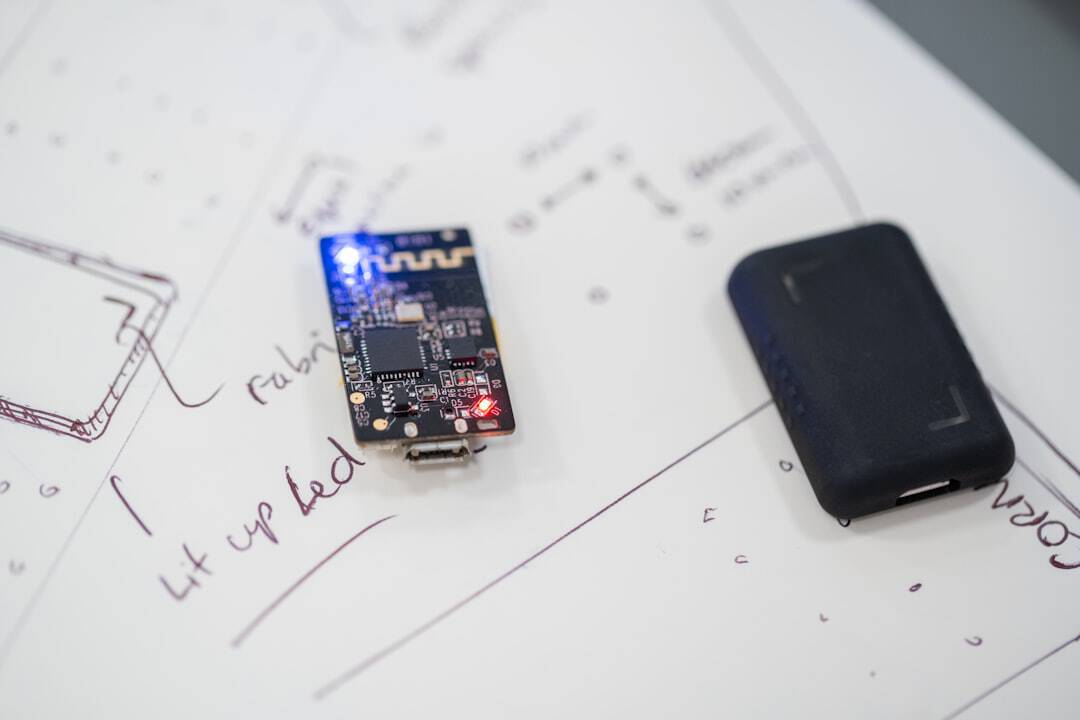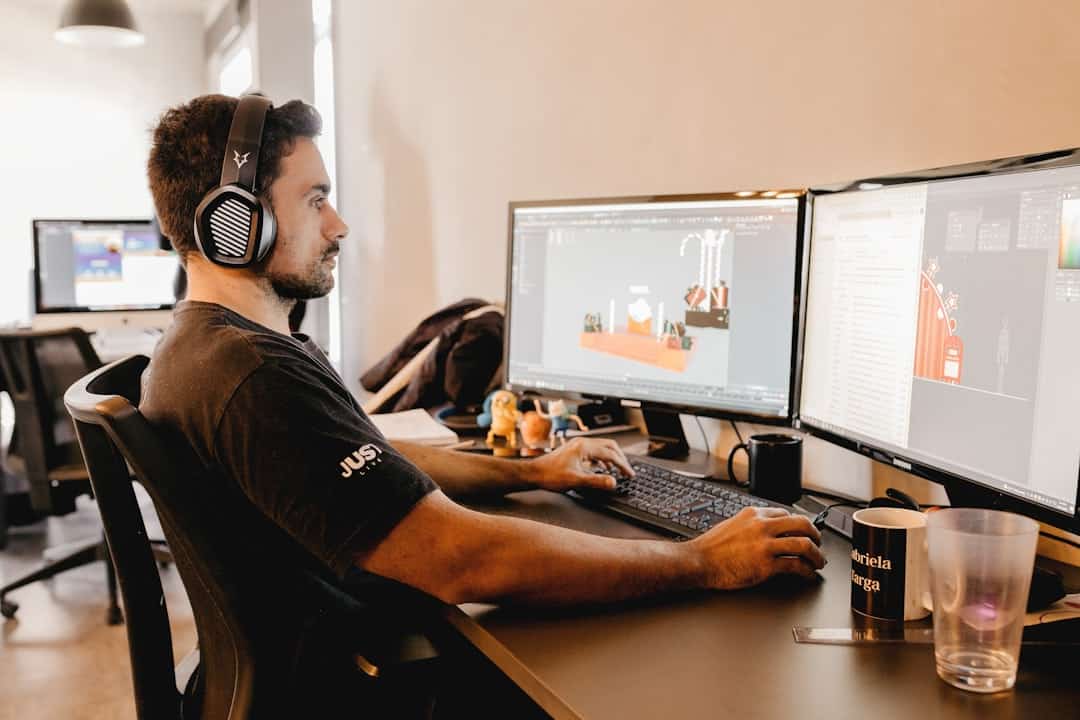In recent years, the concept of digital doppelgängers has gained significant traction, particularly within the context of the burgeoning metaverse. A digital doppelgänger can be understood as a virtual representation of an individual, often created through advanced technologies such as artificial intelligence (AI) and machine learning. These avatars are not mere static images; they are dynamic entities capable of mimicking human behavior, emotions, and even decision-making processes.
As the metaverse—a collective virtual shared space that merges physical and digital realities—continues to evolve, the role of these digital counterparts becomes increasingly pivotal. They serve as a bridge between the real world and virtual environments, allowing users to engage in social interactions, commerce, and entertainment in ways that were previously unimaginable. The metaverse itself is a multifaceted ecosystem that encompasses various platforms, technologies, and user experiences.
It is characterized by immersive environments where individuals can create, explore, and interact with others in real-time. As this digital landscape expands, the integration of AI-driven avatars or digital doppelgängers is transforming how we perceive identity and presence in virtual spaces. These avatars can be customized to reflect personal traits or entirely new personas, enabling users to experiment with their identities in a safe and controlled environment.
This phenomenon raises intriguing questions about the nature of self-representation and the implications of having a digital twin that can operate independently within the metaverse.
Key Takeaways
- Digital doppelgängers and the metaverse are becoming increasingly intertwined, creating new opportunities and challenges for virtual identity.
- AI clones are on the rise in the metaverse, offering users the ability to create personalized and lifelike virtual representations of themselves.
- The impact of digital doppelgängers on virtual identity is significant, as users navigate the complexities of maintaining a distinct online persona.
- Ethical and privacy concerns surrounding AI avatars are a growing issue, as the use of clone technology raises questions about consent and data security.
- Clone technology plays a crucial role in shaping the metaverse, offering new ways for users to interact and engage with virtual environments.
The Rise of AI Clones in the Metaverse
The emergence of AI clones within the metaverse marks a significant technological advancement that is reshaping our understanding of virtual interactions. These AI-driven avatars are designed to learn from their users, adapting their behaviors and responses based on accumulated data and interactions. This capability allows them to engage in conversations, make decisions, and even exhibit emotional responses that closely mirror those of their human counterparts.
As a result, users can experience a more authentic and engaging interaction with their digital doppelgängers, blurring the lines between reality and virtuality. The rise of these AI clones is not merely a trend; it represents a fundamental shift in how we approach communication and socialization in digital spaces. Moreover, the proliferation of AI clones is fueled by advancements in natural language processing, computer vision, and machine learning algorithms.
These technologies enable avatars to understand context, recognize emotions, and respond appropriately to various stimuli. As developers continue to refine these capabilities, the potential for creating highly sophisticated digital doppelgängers becomes increasingly feasible. This evolution is not limited to social interactions; it extends to various sectors such as education, healthcare, and entertainment.
For instance, AI clones can serve as personalized tutors or virtual companions for individuals seeking support or guidance. The implications of this technology are vast, suggesting that AI clones could redefine our experiences in the metaverse and beyond.
The Impact of Digital Doppelgängers on Virtual Identity

Digital doppelgängers have profound implications for how individuals construct and express their identities within virtual environments. In traditional social contexts, identity is often tied to physical appearance, social status, and personal history. However, in the metaverse, users have the freedom to create avatars that may not necessarily reflect their real-world selves.
This flexibility allows for a diverse range of self-expressions, enabling individuals to explore different facets of their personalities or even adopt entirely new identities. As a result, the metaverse becomes a canvas for self-exploration and experimentation, where users can navigate various social dynamics without the constraints imposed by their physical realities. The impact of this shift extends beyond personal expression; it also influences how individuals relate to one another in virtual spaces.
The anonymity afforded by digital doppelgängers can lead to more open and honest interactions, as users may feel less inhibited when engaging with others through avatars that do not reveal their true identities. However, this anonymity can also foster negative behaviors such as trolling or harassment, as some individuals may exploit the lack of accountability that comes with being represented by an AI clone. Consequently, while digital doppelgängers offer exciting opportunities for self-exploration and connection, they also present challenges that necessitate careful consideration of how identity is constructed and navigated in the metaverse.
Ethical and Privacy Concerns Surrounding AI Avatars
As the use of AI avatars becomes more prevalent in the metaverse, ethical and privacy concerns emerge as critical issues that warrant attention. One significant concern revolves around data privacy; AI clones often require access to vast amounts of personal information to function effectively. This data may include behavioral patterns, preferences, and even sensitive information that users may not be comfortable sharing.
The potential for misuse or unauthorized access to this data raises questions about who owns the information generated by these digital doppelgängers and how it can be protected from exploitation. Additionally, ethical dilemmas arise regarding the authenticity of interactions facilitated by AI avatars. If an individual engages with an AI clone that closely mimics a real person’s behavior or personality traits, it raises questions about consent and representation.
Users may inadvertently form emotional connections with these avatars without fully understanding their artificial nature. This blurring of lines between human and machine can lead to feelings of betrayal or confusion when users realize they are interacting with an AI rather than a genuine person. As such, developers and stakeholders must navigate these ethical complexities carefully to ensure that the deployment of AI clones enhances user experiences without compromising individual rights or emotional well-being.
The Role of Clone Technology in Shaping the Metaverse
Clone technology plays a pivotal role in shaping the future landscape of the metaverse by enabling more immersive and interactive experiences for users. By leveraging advanced algorithms and machine learning techniques, developers can create highly realistic avatars that not only replicate physical appearances but also embody unique personality traits and behaviors. This level of sophistication allows for richer interactions between users and their digital doppelgängers, fostering deeper connections within virtual communities.
As clone technology continues to evolve, it has the potential to redefine how we engage with one another in these digital spaces. Furthermore, clone technology can facilitate new forms of storytelling and content creation within the metaverse. For instance, creators can design narratives that involve AI-driven characters capable of responding dynamically to user choices and actions.
This interactivity transforms traditional storytelling into an engaging experience where users feel like active participants rather than passive observers. As a result, clone technology not only enhances individual experiences but also contributes to the overall richness of the metaverse as a platform for creativity and collaboration.
The Potential for AI Clones to Enhance Virtual Experiences

Revolutionizing Virtual Experiences with AI Clones
The integration of AI clones into the metaverse holds immense potential for enhancing virtual experiences across various domains. In gaming, for example, players can interact with AI-driven characters that adapt to their play styles and preferences, creating a more personalized gaming experience. These intelligent avatars can learn from player behavior over time, offering tailored challenges or support based on individual skill levels.
Enhancing Engagement and Companionship in Virtual Environments
This adaptability not only increases engagement but also fosters a sense of companionship between players and their digital counterparts. The ability of AI clones to learn and adapt to individual preferences creates a more immersive experience, drawing players deeper into the virtual world.
Transforming Education with Personalized AI Tutors
Beyond gaming, AI clones can significantly enhance educational experiences within virtual environments. Imagine a classroom where students interact with personalized AI tutors that cater to their unique learning needs. These avatars could provide real-time feedback, adapt lesson plans based on student progress, and even simulate real-world scenarios for practical learning experiences.
Unlocking the Potential of AI Clones in Education
By leveraging AI technology in educational settings, learners can benefit from customized support that promotes deeper understanding and retention of knowledge. The potential applications are vast, suggesting that AI clones could revolutionize how we approach learning in immersive environments.
The Future of Digital Doppelgängers in the Metaverse
Looking ahead, the future of digital doppelgängers in the metaverse appears promising yet complex. As technology continues to advance at an unprecedented pace, we can expect even more sophisticated AI clones capable of seamlessly integrating into various aspects of our lives—both online and offline. These avatars may evolve beyond mere representations of individuals; they could become integral components of our daily routines, assisting with tasks ranging from scheduling appointments to providing companionship during solitary moments.
The potential for these digital twins to enhance our lives is vast but also raises questions about dependency on technology. Moreover, as society becomes increasingly interconnected through digital platforms, the role of digital doppelgängers will likely expand into areas such as professional networking and remote work environments. Virtual meetings could feature highly realistic avatars representing team members who are unable to attend in person, fostering collaboration across geographical boundaries.
However, this evolution will necessitate ongoing discussions about authenticity and representation in professional settings. As we navigate this future landscape filled with possibilities, it will be essential to strike a balance between embracing technological advancements while remaining mindful of their implications for identity, privacy, and interpersonal relationships.
In conclusion, the intersection of AI clones and the metaverse presents both exciting opportunities and significant challenges that society must navigate thoughtfully. Digital doppelgängers have the potential to transform how we interact with one another in virtual spaces while offering new avenues for self-expression and creativity. However, as we embrace these advancements, it is crucial to address ethical considerations surrounding privacy, consent, and authenticity to ensure that users feel safe and respected within these environments.
As we move forward into an increasingly digitized future where AI clones become commonplace in our daily lives—whether through gaming experiences or professional interactions—it will be essential for developers, policymakers, and users alike to engage in ongoing dialogues about best practices for utilizing this technology responsibly. By fostering an environment that prioritizes ethical considerations alongside innovation, we can harness the full potential of digital doppelgängers while safeguarding individual rights and promoting positive interactions within the ever-evolving metaverse.
In exploring the implications of AI clones within virtual environments, it’s crucial to consider the ethical dimensions that accompany such technological advancements. A related article that delves into these concerns is Challenges and Opportunities in the Metaverse: Ethical Considerations. This piece provides a comprehensive overview of the ethical issues that arise as we integrate more deeply into virtual worlds, offering a pertinent complement to discussions about digital doppelgängers and their interactions in the metaverse. It addresses key concerns such as privacy, identity, and the potential for manipulation, which are essential to consider when evaluating the future of AI clones and their roles in digital realms.
FAQs
What are digital doppelgängers?
Digital doppelgängers are virtual representations or clones of real individuals created using artificial intelligence (AI) and other digital technologies. These clones can be used in various virtual environments, such as the metaverse, for different purposes.
What is the metaverse?
The metaverse is a collective virtual shared space, created by the convergence of virtually enhanced physical reality and physically persistent virtual reality. It is a space where people can interact with each other and digital objects in a computer-generated environment.
How do AI clones interact with the metaverse?
AI clones can interact with the metaverse by being programmed to behave and respond like their real-life counterparts. They can participate in virtual events, meetings, and activities, and can even engage in social interactions with other users within the metaverse.
What are the potential implications of AI clones in the metaverse?
The presence of AI clones in the metaverse raises ethical, privacy, and security concerns. It also has the potential to blur the lines between reality and virtual reality, and may impact how individuals perceive and interact with digital representations of themselves and others.
How are AI clones created?
AI clones are created using advanced AI algorithms and technologies that analyze and replicate the behavior, speech patterns, and appearance of real individuals. These technologies can generate realistic digital doppelgängers that closely resemble their human counterparts.











Leave a Reply